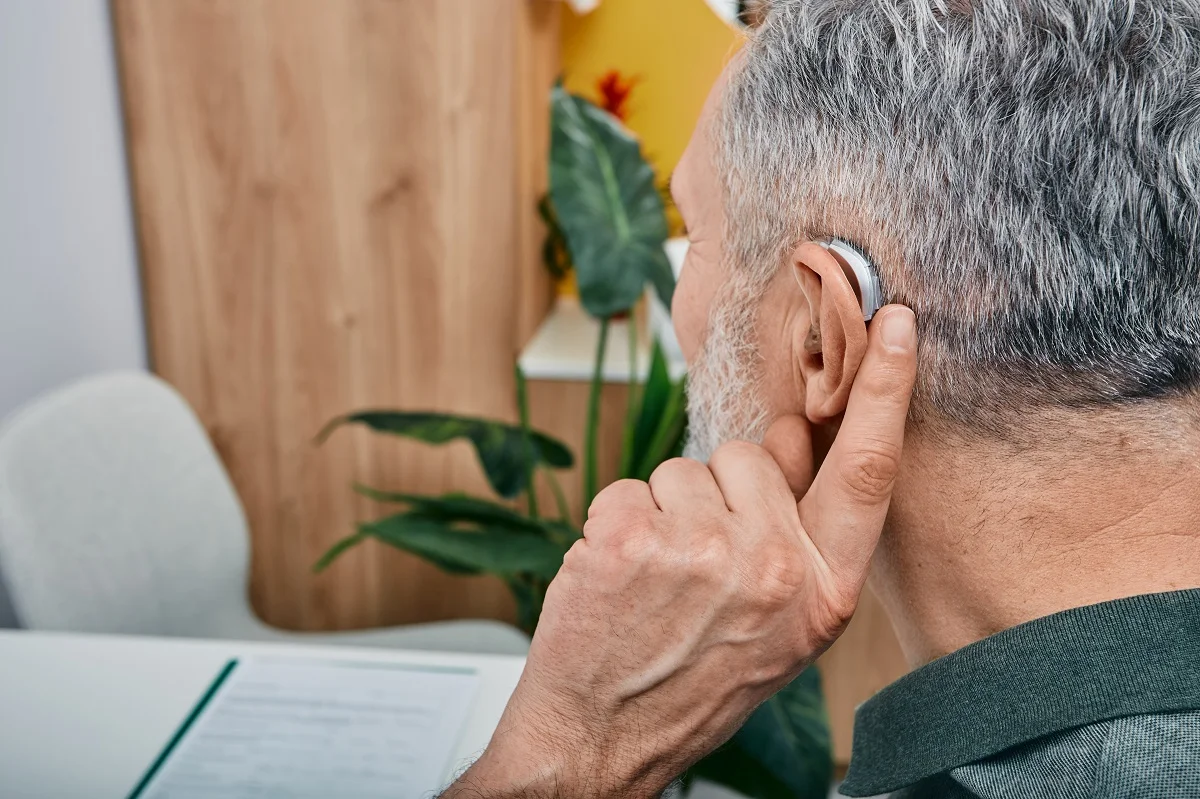
Did you know that hearing loss is the third most common medical condition older adults live with today? According to the National Institute on Deafness & Other Communication Disorders, 1 in 3 adults who are between 65-74 have hearing loss. This increases to half of all adults, ages 75 and older! Though hearing loss is pervasive, it is widely undertreated. In fact, only a third of people who could benefit from treatment actually receive it. Untreated symptoms can have major effects on everyday life, health, and wellness. This includes straining communication, relationships, and increasing health risks. If you have any hearing loss symptoms it is important to intervene by having your hearing evaluated. Treating hearing loss offers countless life-changing benefits that transform hearing and quality of life.
What causes age-related hearing loss?
It takes an average of 7 years for people to address their hearing loss symptoms. This delay in treatment can worsen impairment and symptoms, taking a toll on health in major ways. Studies show that hearing loss tends to be ignored for quite some time. This includes a recent study published by the American-Speech-Language-Hearing Association. Researchers examined the scope of untreated hearing loss by polling a nationally representative sample of nearly 2,500 adults. Key findings include:
-
2 in 10 adults have had a hearing test in the past 5 years, compared to 6 in 10 adults who have had their vision tested.
-
More than 51% of people reported hearing issues but only 11% have sought treatment.
-
78% of those with hearing issues have been experiencing these challenges for 1 or more years, and over 35% have had trouble for 5 or more years.
This data highlights that the majority of people with hearing loss have not sought treatment. Even when symptoms have been experienced for a number of years. These findings show a deprioritization of hearing health.
Why is age-related hearing loss undertreated?
There are a few reasons that help illuminate why hearing loss tends to be undertreated and put off for so long. This includes:
-
Slow onset: hearing loss is a condition that typically occurs slowly. Because of this slower onset, people may not recognize symptoms for a while. This means that people could not be aware that they are experiencing hearing loss until symptoms worsen.
-
Misconceptions: there are numerous misconceptions about hearing loss that often minimize the condition. This includes that if you can hear then your hearing is fine and that hearing loss is curable so can be dealt with later. But untreated symptoms can actually worsen impairment and hearing and though there are effective treatment options, most hearing loss that people experience today is not curable.
-
Stigma: though hearing loss is common, there is still stigma associated with it. People may feel embarrassed about their hearing loss. It can be tough to also acknowledge changes to hearing health.
These factors often contribute to ignoring hearing loss symptoms and delaying treatment. It is important to know though that inaction exacerbates symptoms and worsens hearing health.
How is hearing loss treated?
There is a wide range of effective hearing health services, resources, and solutions you can access to support your hearing health. The first step towards treatment is having your hearing evaluated by a hearing healthcare specialist. Hearing tests involve a painless process that measures hearing capacities in both ears. This identifies any hearing loss and the degree of impairment you are experiencing. Once your hearing needs are established, your hearing healthcare provider is able to tailor treatment to meet those needs.
The most common treatment for hearing loss is hearing aids. These are electronic devices that are designed to absorb, amplify, and process speech and sound. This provides the ears and brain with ample hearing support, alleviating symptoms and increasing one’s capacity to hear. Today’s hearing aids are more innovative than ever before. Like most electronics, hearing aids have experienced many advancements in recent years. This includes award winning sleek designs, savvy features, and several styles. Hearing aids offer a number of technologies and features that enhance sound quality, increase connectivity, and create optimal hearing experiences in everyday life.
Treating hearing loss not only improves hearing but also relationship, social life, health, and wellness. Hearing aids allow people to live active lives that they can fully engage in. Contact us today to schedule an appointment for a hearing consultation.
